Looking to rent in Lafayette? I know firsthand how overwhelming it can feel to find the right property, prepare all the paperwork, and make sure your next move is a smooth one. Whether you’ve done this before or it’s your first apartment, questions always pop up: What’s included in the rent? Is there a maintenance plan? Do I have everything ready to impress a landlord? If you want confidence as you start your search, you’re definitely not alone.
I put together this Lafayette rent prep checklist for anyone who wants clarity and a solid plan. Let’s walk through every step together, so you can feel organized and ready for whatever your Lafayette rental journey brings.
Key Takeaways
- Use a detailed Lafayette rent prep checklist to stay organized and increase your chances of securing the right rental property.
- Start your search by defining your must-haves, budget (including all fees), and preferred neighborhoods to quickly filter options.
- Gather essential documents such as proof of income, photo ID, rental history, and pet records before applying.
- Conduct a thorough inspection of each property using a written checklist to spot issues not shown in photos.
- Ask landlords or property managers specific questions about utilities, fees, maintenance, and move-out procedures for full clarity.
- Carefully review all lease details and fee breakdowns before signing to avoid surprises and protect your deposit.
Understanding the Rental Market in Lafayette
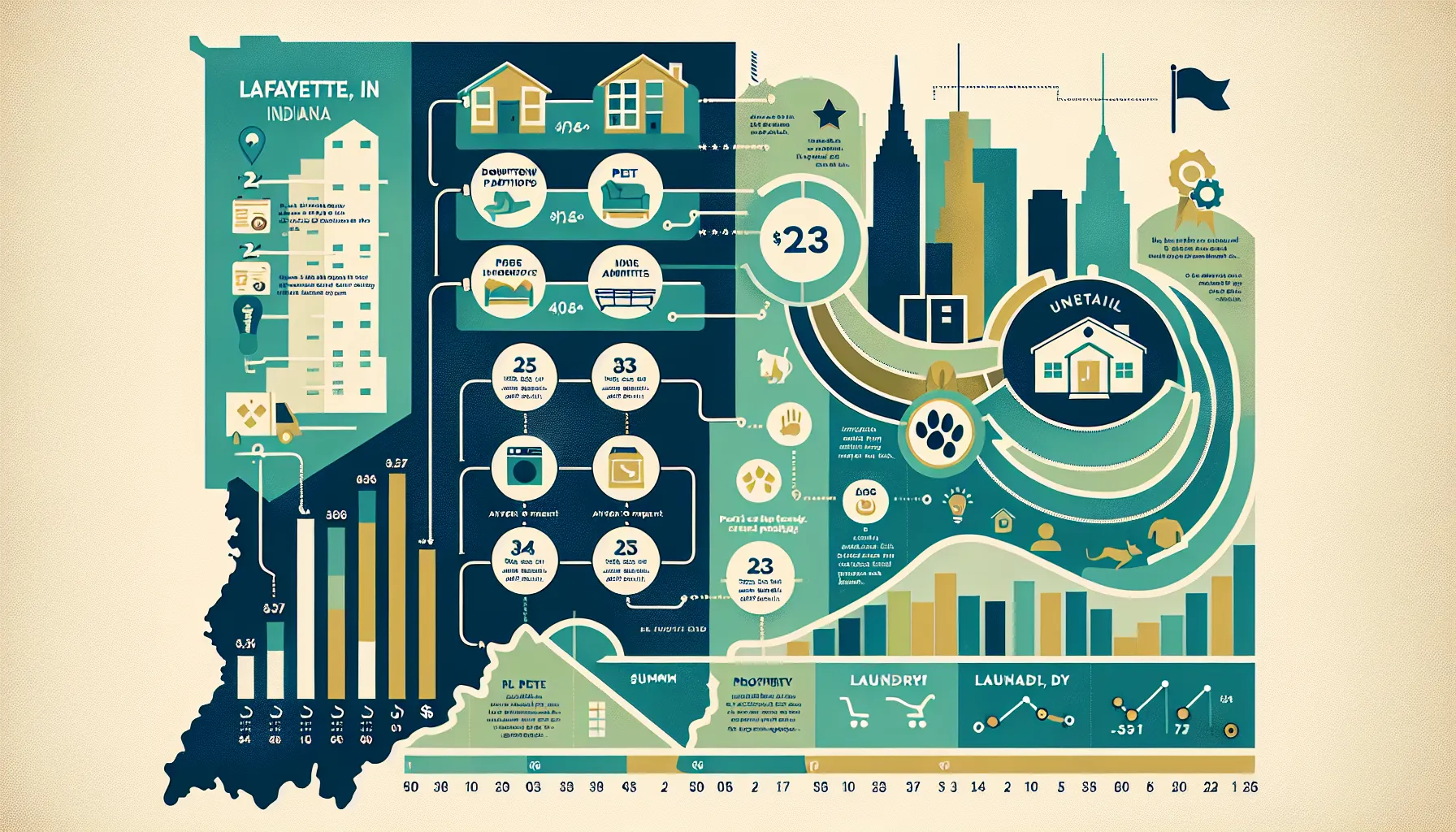
Before you sign any lease or schedule tours, it’s important to get a feel for Lafayette’s rental scene. Lafayette is a dynamic community, there’s a mix of suburban charm, college influence, and steady economic growth. This means rental demand can fluctuate based on the season, nearby college schedules, and even local business events.
From my experience, Lafayette has a full spectrum of options. You’ll see everything from downtown apartments to single-family homes in quieter neighborhoods. Rents tend to range based on the area, number of bedrooms, amenities, and updates to the property. Right now, two-bedroom apartments often fall between $900 and $1,400 per month, but higher-end options or homes can go above that.
Another thing to watch for is competition. Some seasons, especially late summer, see higher demand because of student move-ins. If you need a rental during that time, acting quickly with your paperwork may give you an advantage. Are you hoping for a pet-friendly lease or onsite laundry? Make note of your must-haves: in Lafayette, options exist, but the best places can move fast.
Evaluating Your Rental Needs and Budget
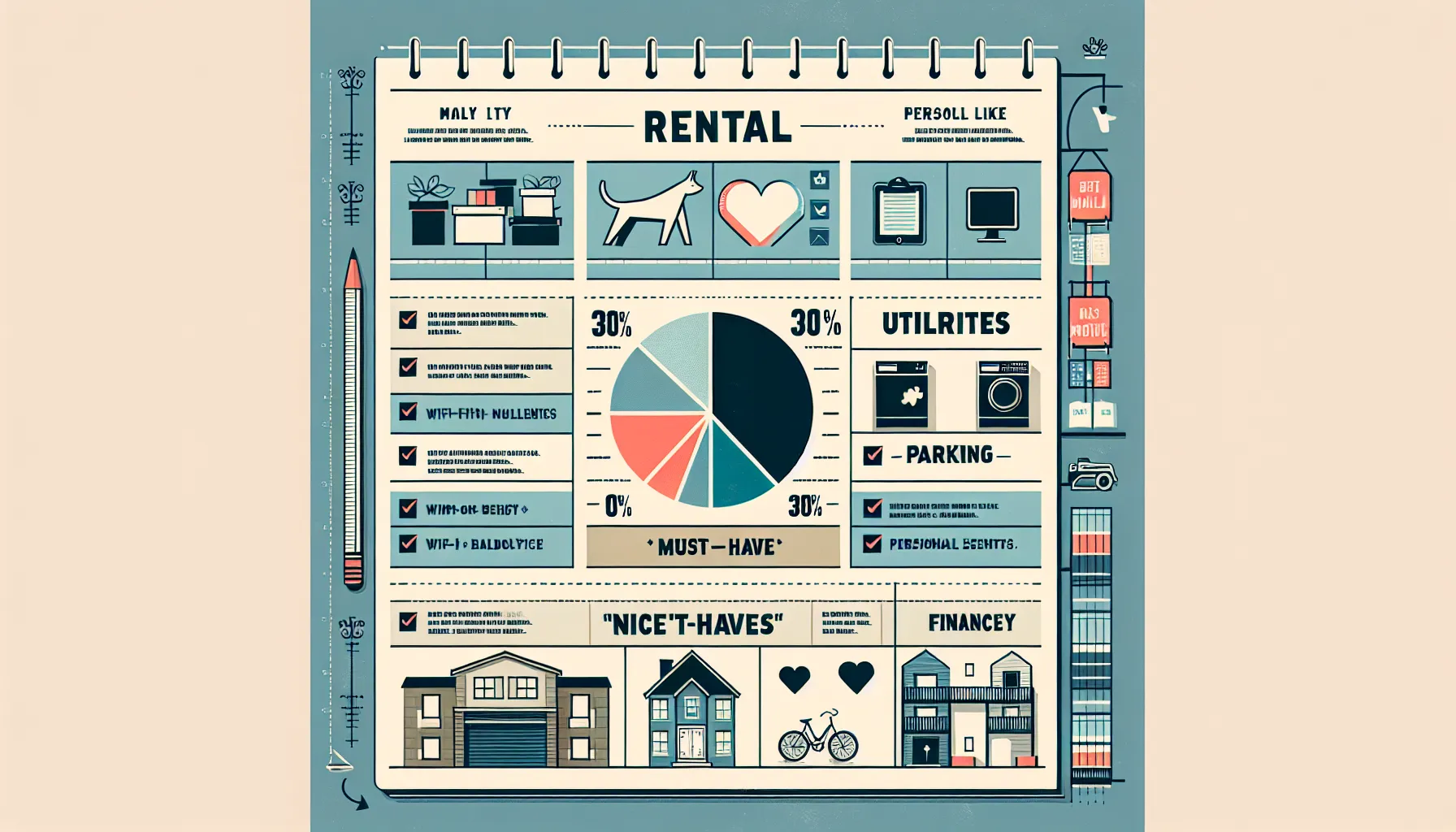
I’ve learned it’s smart to start your search with a clear understanding of what you actually need versus what’s just nice to have. Think about your lifestyle, do you need to be near the university or your workplace? Is off-street parking a dealbreaker? Knowing this will help narrow your options and avoid wasting time.
Next up: budget. Most experts (and my own budgeting headaches) will tell you to aim for spending no more than 30% of your monthly income on rent. Don’t forget to include utilities, internet, parking fees, or any maintenance charges that might sneak in. Properties in Lafayette set their prices based on amenities, things like semi-annual inspections or built-in marketing support may be reflected in the rent or management fees.
Make a quick checklist:
- List your absolute “musts.” (Pet-friendly, two bedrooms, washer-dryer hookup, etc.)
- Define your budget, including all possible monthly and one-time fees.
- List “nice-to-haves” you could live without if needed.
Start your search with this list front and center. It will help you filter properties quickly and avoid falling for a place that doesn’t actually work for your lifestyle.
Essential Documents and Information to Gather
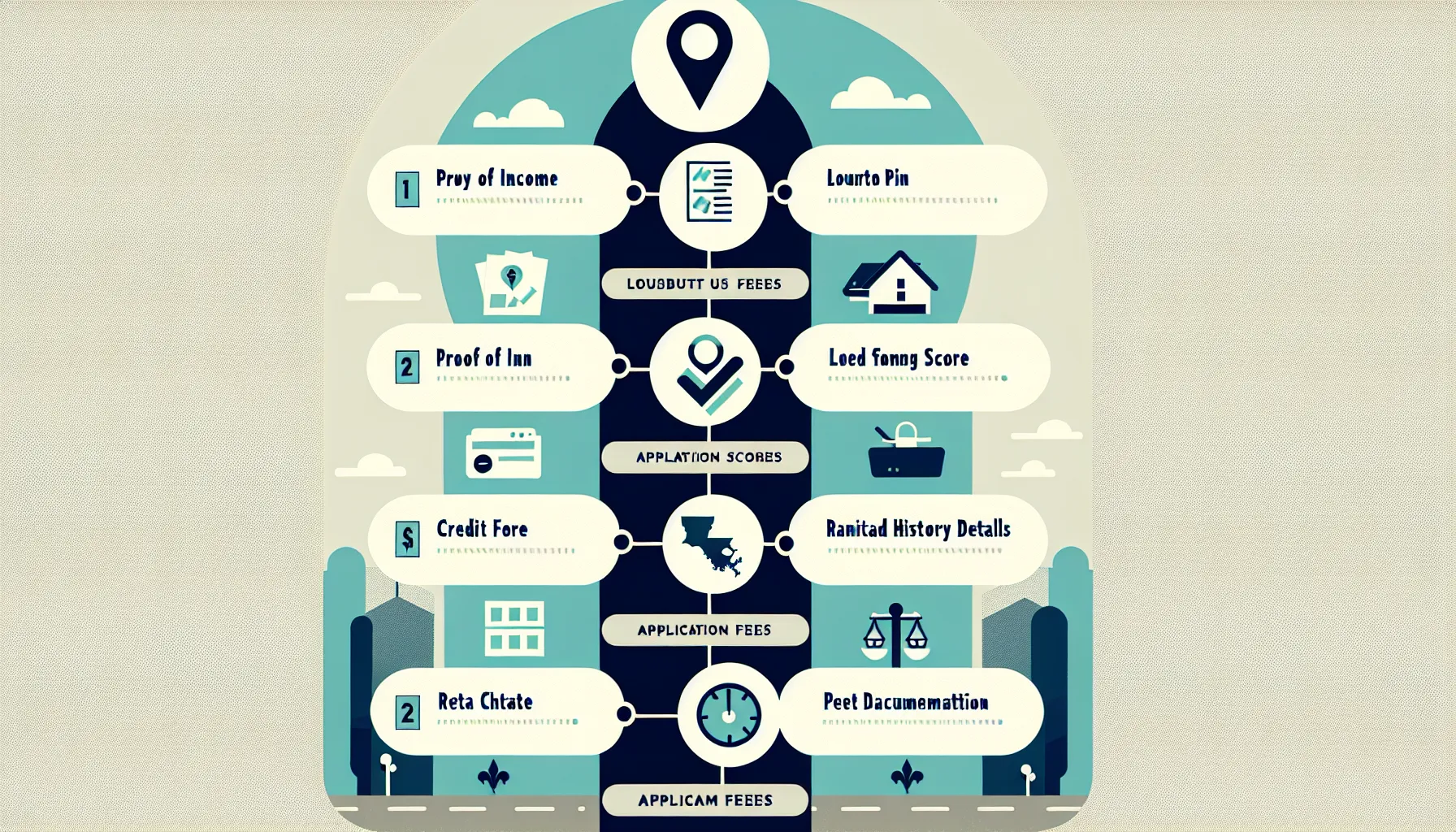
Once you have your criteria, gather the documents you’ll need. I can’t count the number of times I’ve watched renters lose a dream apartment simply because they couldn’t provide information quickly.
Here’s what I always pull together:
- Proof of Income – Recent pay stubs, bank statements, or an offer letter. Typically, landlords look for income equal to about three times the rent.
- Photo ID – State driver’s license or another government-issued ID.
- Rental History – Past addresses, landlord contact info, and references.
- Credit Report – Some rental agencies pull this themselves, but having a recent one on hand shows you’re serious.
- Application Fee – Most applications have a small non-refundable fee.
- Pet Records – If you have pets, bring vaccination and registration info.
With property managers in Lafayette, you’ll often see one-time set up fees (frequently $100), leasing fees, and sometimes marketing charges. Prepare for those up front to avoid surprises halfway through the process.
Having all these ready makes your application stand out in a competitive market.
Inspecting Properties: What to Look For
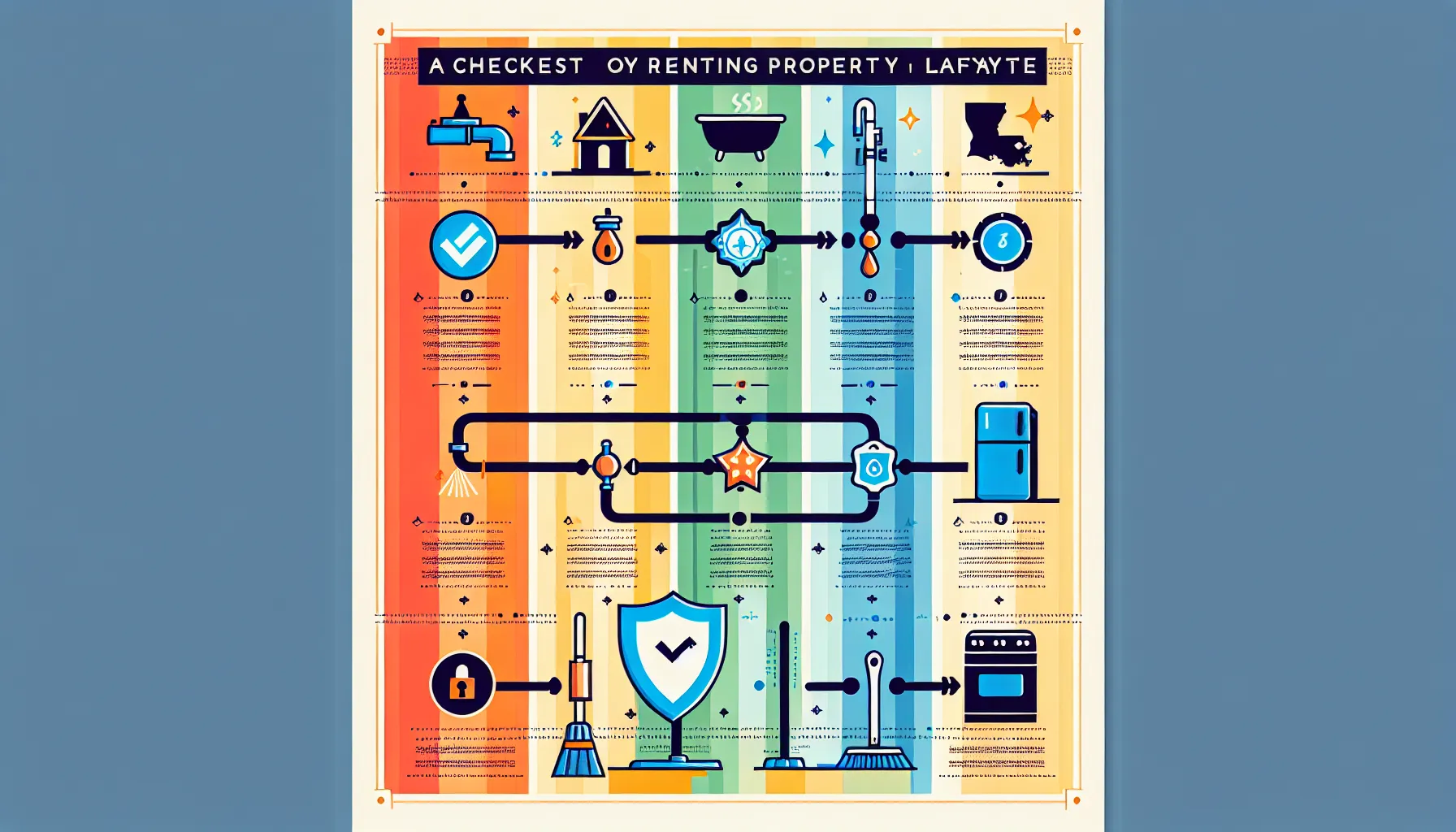
Walking into a possible rental, I always rely on a written checklist. There’s something about seeing a place in person that photos just don’t capture, maybe it’s that slightly leaky faucet or the musty smell in the laundry closet. A careful inspection is key for your peace of mind.
Checklist for Your Walk-Through
- Overall Cleanliness: Are floors, walls, and appliances clean?
- Plumbing: Run the faucets and check under sinks for leaks.
- Electrical: Test outlets, flip switches, and check the circuit panel.
- Safety: Are smoke and carbon monoxide detectors working? Any visible mold?
- Locks and Security: Do all windows and doors lock securely?
- Heating/Cooling: Make sure the AC and heat function correctly, Lafayette summers can get warm.
- Appliances: If included, ask to see them working.
I usually snap a few photos on my phone, especially if I spot anything questionable. This protects you later if a disagreement comes up over damage or conditions. Don’t be shy about scheduling another visit if something feels off: a little due diligence now saves a ton of frustration later.
Questions to Ask Landlords and Property Managers
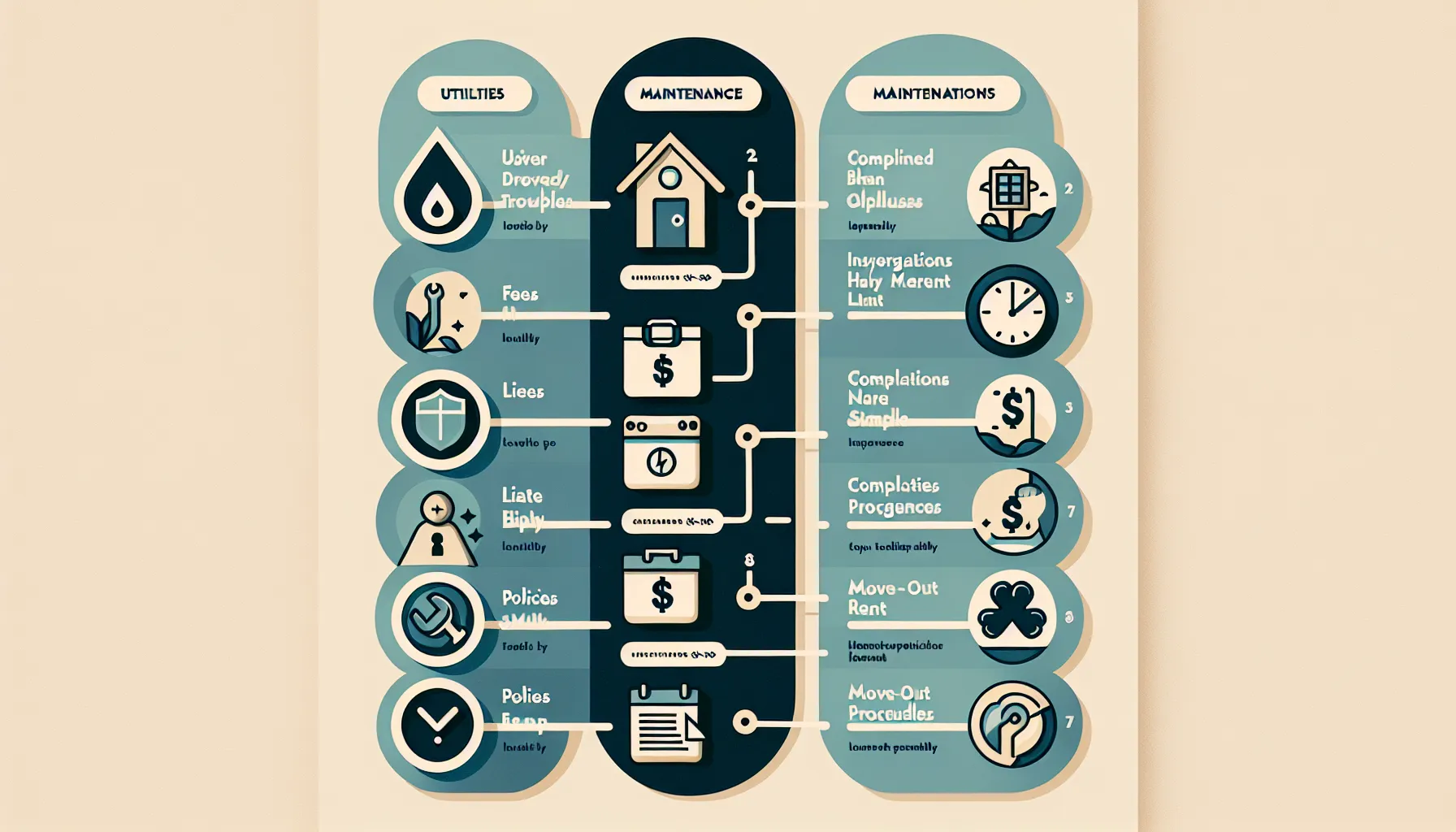
Once you’re satisfied with your inspection, it’s time to ask probing questions. No detail is too small when your day-to-day comfort is at stake.
Here are the questions I always ask in Lafayette:
- What utilities are included? (It’s common for water and trash to be included, but not electric.)
- How is routine maintenance handled? Who do I contact for repairs, and how quickly can I expect a response?
- Are there extra fees, such as for set-up, leasing, inspections, or marketing?
- Is renters’ insurance required? What does it need to cover?
- How often are inspections done? Some local managers perform semi-annual or annual checks and may charge for these services.
- How do you handle tenant complaints or emergencies?
- What are the late rent and pet policies?
- What happens at move-out? Will there be a close-out inspection or fee?
It never hurts to get all terms in writing. Clear, direct communication with landlords or property managers often leads to better experiences on both sides.
Final Steps Before Signing the Lease
Now, you’re close to the finish line. But before you sign, slow down and double-check the details. I always review the lease carefully, line by line. Here’s my checklist for this step:
- Review All Fees: Make sure the lease breaks down every cost, monthly rent, set-up fee, leasing fee, annual inspection charges, marketing costs, and any others. In Lafayette, common figures can include a $100 set-up fee, leasing fees around $199, and monthly management percentages ranging from 6.5% to 7.5%, depending on your rental arrangement.
- Terms and Conditions: Confirm the lease length, renewal options, pet policy, and subletting rules.
- Repair & Maintenance Clause: Who fixes what, and how fast? Look for specifics.
- Utilities and Deposits: Double-check which utilities are included. Review deposit requirements and conditions for returns.
- Move-in/Move-out Checklist: An official checklist can protect your security deposit.
If anything is unclear, speak up. A good landlord or property manager should answer questions and provide all necessary documents. Taking these last steps will help you feel confident before moving forward.
Conclusion
Renting in Lafayette doesn’t have to be complicated if you take a systematic approach. I’ve seen how being organized helps renters secure better properties and reduces headaches down the line. By understanding the local market, planning your budget, gathering your documents early, and asking the right questions, you set yourself up for a smooth transition.
Remember, your comfort matters. Trust your checklist, follow your instincts, and don’t rush into a commitment unless it feels right. If you’re prepared, you’ll not only find a place you love but also have confidence every step of the way. Happy hunting.
Lafayette Rent Prep Checklist: Frequently Asked Questions
What should be included in a Lafayette rent prep checklist?
A Lafayette rent prep checklist should include budgeting for rent and fees, preparing essential documents like proof of income and ID, listing your must-have amenities, conducting property inspections, asking about included utilities, and closely reviewing the lease terms before signing.
How much should I budget for rent in Lafayette?
Experts recommend spending no more than 30% of your monthly income on rent in Lafayette. Average rents for a two-bedroom apartment typically range from $900 to $1,400 per month, but higher-end properties or single-family homes may cost more. Don’t forget to include utilities and additional fees.
What documents do I need to rent an apartment in Lafayette?
You will need proof of income (like pay stubs or a job offer letter), a government-issued photo ID, rental history with references, a recent credit report, and pet records if you have pets. Also be ready for a possible application fee when submitting your rental application.
What should I look for during a rental property inspection in Lafayette?
During your walk-through, check cleanliness, test plumbing and electrical systems, confirm safety features like working smoke detectors, ensure doors and windows lock, and inspect heating, cooling, and appliances. Take photos to document the property’s condition and protect your security deposit.
Are there any typical additional fees for renters in Lafayette?
Yes, renters in Lafayette may encounter set-up fees (commonly around $100), leasing fees (often $199), and management charges (usually a percentage of monthly rent). These fees should be disclosed in the lease, so always review it carefully before signing.
How can I make my rental application stand out in Lafayette’s competitive market?
To stand out, have all documents ready, respond quickly to property listings, and provide accurate information. A well-prepared application with references, proof of income, and a positive attitude increases your chances in Lafayette’s busier rental seasons, especially around late summer when demand is high.
